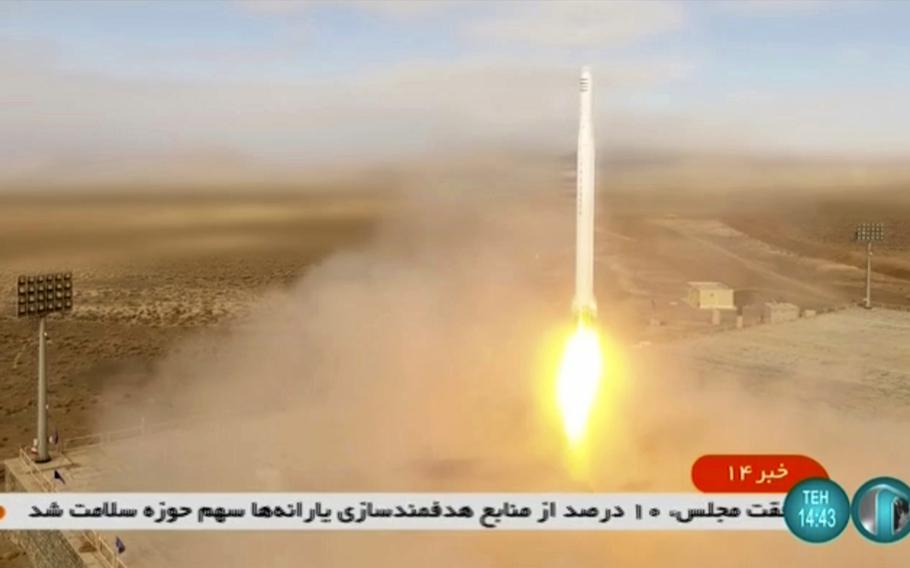Middle East
US says Iran nuclear deal not imminent amid deadlock over IRGC
Bloomberg March 28, 2022
(Tribune News Service) — The U.S. said the revival of a nuclear deal with Iran may not happen soon following recent requests from Tehran, including that Washington removes the Islamic Revolutionary Guard Corps from its list of terrorist organizations.
“I can’t be confident it’s imminent,” Robert Malley, U.S. Special Envoy for Iran, told reporters on Sunday at a conference in Qatar. “A few months ago we thought it was imminent.”
The comments come as the U.S. reassesses the political costs of reviving the 2015 pact that limited Iran’s nuclear activities in return for sanctions relief, including on oil exports. Russia’s war on Ukraine is also complicating the negotiations, which involve Moscow.
Talks in Vienna between Iran and the European Union, U.K., Russia and China have dragged on for a year. Tehran and the U.S. are negotiating indirectly.
The status of the IRGC, a military organization that’s armed Iranian proxy groups around the Middle East and been blamed for numerous attacks on the U.S. and its allies, isn’t directly linked to the 2015 agreement. But Iran has insisted that the group comes off the black list.
“It’s one of the requests Iran has made,” Malley said. “We haven’t decided to delist the IRGC. The sooner we get back into the deal — we think it’s in our interest to be back in a deal and we think Iran’s too — the more faithfully we can implement it.”
Lifting the designation could alienate Saudi Arabia, the United Arab Emirates and Israel, just as President Joe Biden works to rally them against Moscow.
Saudi Arabia and the UAE have been attacked by Iranian-backed Houthi rebels based in Yemen several times this year. The most recent strikes came on Friday, when the Houthis targeted several sites in Saudi Arabia with missiles and drones and caused a large fire at a fuel depot in Jeddah, where Sunday’s Formula 1 race is taking place.
Gulf Arab states have criticized Washington for responding too slowly to Houthi aggression and pursuing the nuclear negotiations with Iran, which they fear will hand Tehran an oil windfall.
The Saudis and Emiratis have resisted U.S. calls to pump more crude and help bring down prices after their surge to around $120 a barrel in the wake of Russia’s attack on Ukraine. That’s in part because they’re unhappy with U.S. policy toward Iran and the Houthis.
Malley denied the White House is pushing harder for a deal with Iran because of the run up in oil prices, which has caused gasoline costs for American drivers to jump to an average of about $4.70 a gallon. Energy traders expect Tehran to be able to increase oil production by around 500,000 to 1 million barrels a day within months of any new agreement.
“There’s been zero sense of: ‘Now, you really need to rush for a deal because of the need to get oil on the market,’” Malley said on a panel in Qatar. “I’ve not heard that once.”
Iran said it had agreed with France, Germany and the U.K. on a draft text to restore the nuclear accord, but that a deal hinged on what happened with the IRGC.
The U.S. has “accepted” it must take steps to address “a few key remaining issues,” Foreign Minister Hossein Amirabdollahian said to Iranian television on Saturday. The status of the IRGC is “one of the issues,” he said.
Still, he said senior officials had told his team not to allow matters related to the IRGC to become “a barrier” to doing what is in the country’s interests.
Iran has previously said it wants all sanctions imposed by former U.S. President Donald Trump lifted. It’s also called for a number of individuals to be removed from the U.S. terror list. Trump abandoned the nuclear accord in 2018 and designated the IRGC as a foreign terrorist organization a year later.
Malley’s comments were more pessimistic than those of European Union foreign policy chief Josep Borrell. He said on Saturday that a deal may be just days away.
“We are very close but there are still some issues pending,” Borrell told reporters on the sidelines of the same forum in Qatar, according to AFP.
Enrique Mora, the European Union’s main envoy for the Vienna talks, and Iranian counterpart Ali Bagheri Kani are expected to meet in Tehran on Sunday in a bid to break the deadlock.
___
©2022 Bloomberg L.P.
Visit bloomberg.com.
Distributed by Tribune Content Agency, LLC.

This image taken from video footage aired by Iranian state television on Tuesday, March 8, 2022, shows the launch of a rocket by Iran’s Revolutionary Guard carrying a Noor-2 satellite in northeastern Shahroud Desert, Iran. Iran launched the reconnaissance satellite just as world powers awaited Tehran’s decision in negotiations over the country’s tattered nuclear deal. (Iranian state television/AP)